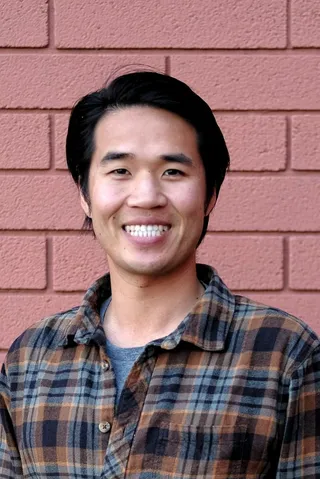Reflections on place and space

Once upon a time, I was a small-human and every day my parents would drop me off at my grandparents's home, 1.6 miles away. It was my home base before and after school, until my dad picked me up and drove us home, winding through the local community college and a few turns through a suburb. For a small-human, the fact that we needed a car made it seem like it was a far away place.
Now, me big-human. I'm home for the holidays, and I come as a runner who needs long, unobstructed routes to run at night without getting into close shaves with cars. I run 6-10 miles as base, with 12-16 miles for long runs. According to my Garmin, anything shorter or slower isn't productive; anything farther, and I'm running alongside cars going 60 mph. That same 1.6 mile route to my grandparents I mentioned earlier... I can run faster than I can drive there. It's the same route, but getting there by foot makes the whole town feel smaller, especially when my needs are different.
Einstein was famous for remarking on the relativity of time: “When you sit with a nice girl for two hours you think it’s only a minute, but when you sit on a hot stove for a minute you think it’s two hours. That’s relativity.” Space is kind of like that. It can expand and shrink according to your emotional gravity, your wants, your needs.
I think back to when I was in Joshua Tree for the first time. It was our nearest national park while I was living in San Diego. And to be honest, I secretly hated my first trip. Our car broke down in the middle of August, and we were cooking under the exposure. As a wet-natured Pacific Northwest boy, it confirmed everything I hated about the desert: It is barren, and even all the life forms are barely surviving. I wasn't a climber back then, so I especially never understood why anyone cared about these rocks in the middle of nowhere.
Two years later, I had caught the climbing fever, and Joshua Tree is famous for its climbing. I came back to JT with new eyes, like a kid in an arcade, trying to decide which machines to slip my quarters into first. I learned every major rock formation by its name, by which side had sun exposure at which parts of the day, which routes existed, and which grades, etc. The very same park--which was once a vague desert, with a vague sense of size, and scantily peppered with vague landmarks--became familiar to me in a way that made the park feel more digestible. I came to know the richness of what was once a barren landscape, and fell in love with everything about it. Silver linings grew to silver seas. The terrain was itself a flow state: neither too familiar to bore me, but neither too foreign to be daunting. It was just right.
My mother hates that I "do dangerous stuff." Backpacking, scuba diving, climbing, etc. But I am learning to empathize with her as I'm understanding that–to her–unknown places are just big, vague, and scary, not unlike pre-climbing Joshua Tree, or small-Westley's conception of his town from the back seat of the car. If only my mother could understand how small these places actually are by getting to know them. (Impossible.) Everything is scarier when it's bigger. It's also true that everything is bigger when it's scarier. That goes equally for walking across a heavily wooded forest, and across the Tenderloin.
I just finished watching Lakota Nation vs. United States (a must-watch). It's a stunning documentary about how the US stole the land from the Sioux Indians and the modern Land Back movement to reclaim it. But it's also about their relationship to their land. It's completely different orders of magnitude, but I can't help but make parallels to my own relationship to certain spaces that are precious to me. Where I see nondescript grassy hills in the rolling plains of South Dakota, a Lakota might know the same hills as intimately as I know the rocks in Joshua Tree. Where I almost died, where I fell in love, where I met new friends.
This movie has beautiful cinematic shots of wild horses running across the rolling plains of South Dakota (stolen land). Horses (and their riders) perceive the land in ways that I instinctively do not: That one hill to another is 20 minutes. I perceive that same hill as 2 hours. A year ago, when I was running zero miles per week, the same hills would be bigger.
What we can do, distorts what we see. Our sense of self, colors our sense of place.
I became a first-time uncle a few weeks ago, and saw my niece for the first time. It's been making me think a lot more about wanting children and how I want to raise mine. Some loosely held opinions have gone by the wayside, but some themes are always stable. Strong theory of mind. Body autonomy. And a strong sense of place.
Robin Wall Kimmerer remarked that the children can name more logos than they can the name of plants.
That will not be my children.
She will have memories sewn all throughout our neighborhood and far away places. He will have a relationship with both the past (natural history) and the present (phenology). She will know the land as if she knows any other person, so she will never be alone.
@westleydang Newsletter
Join the newsletter to receive the latest updates in your inbox.



